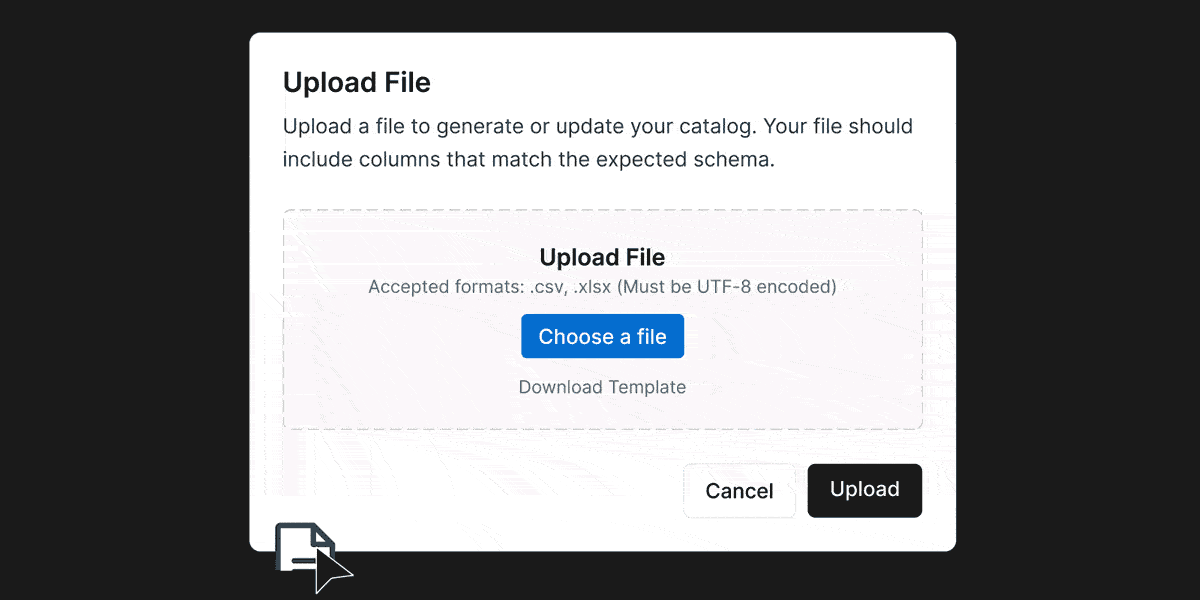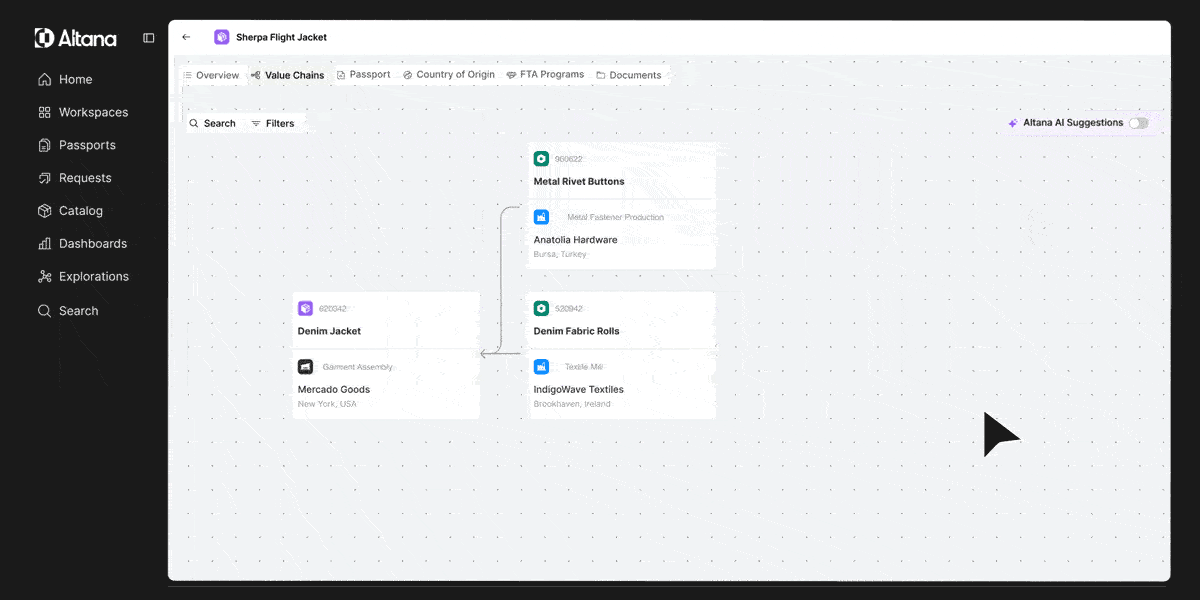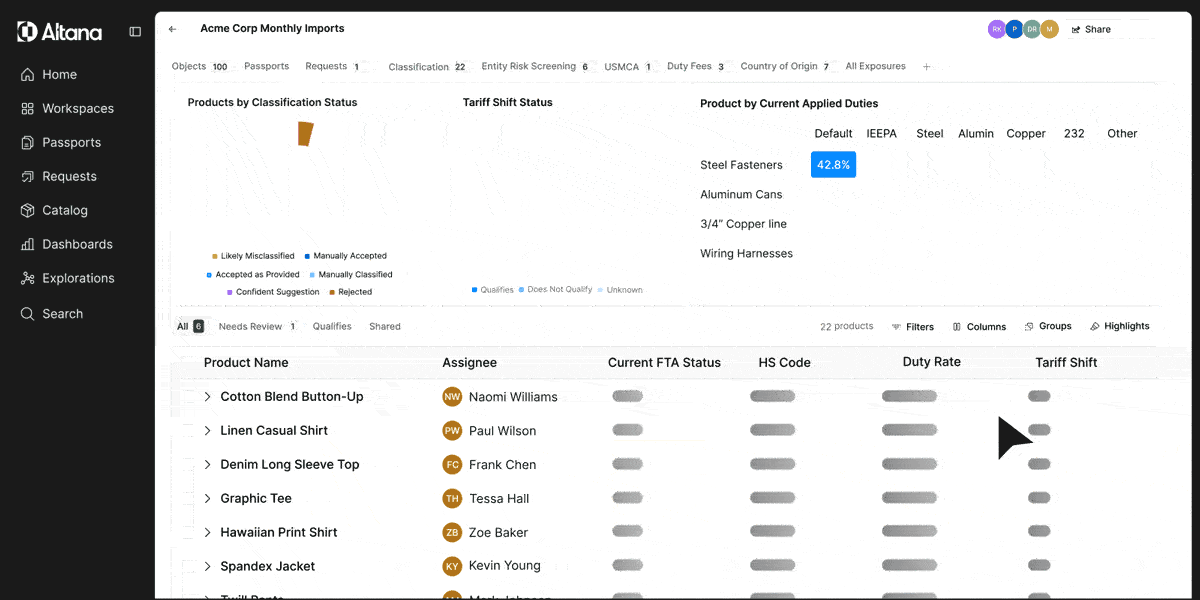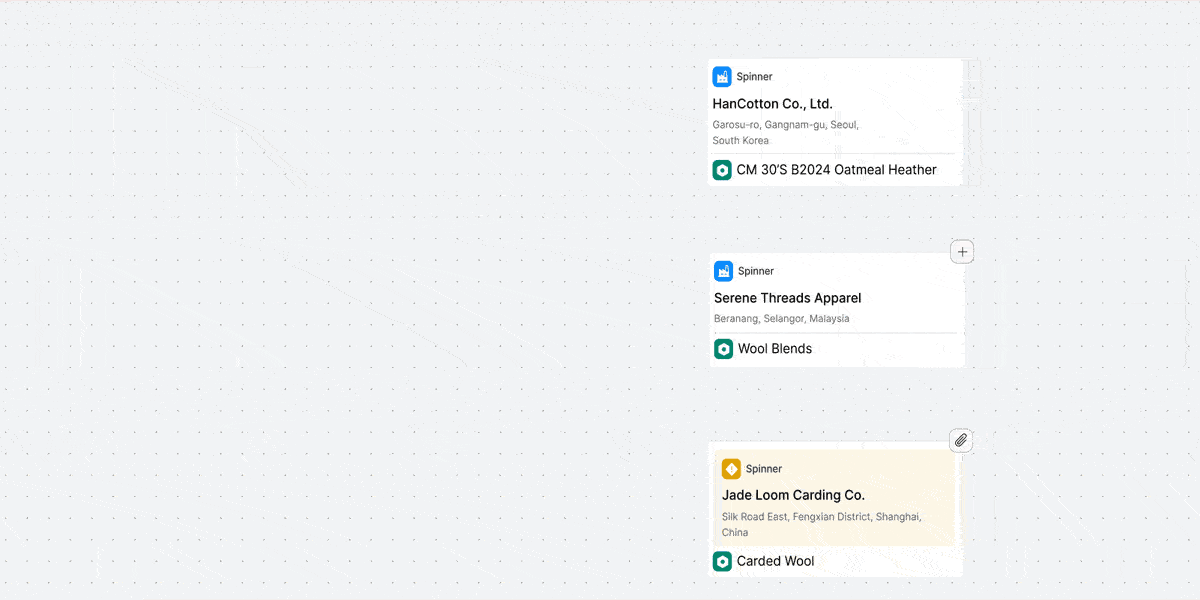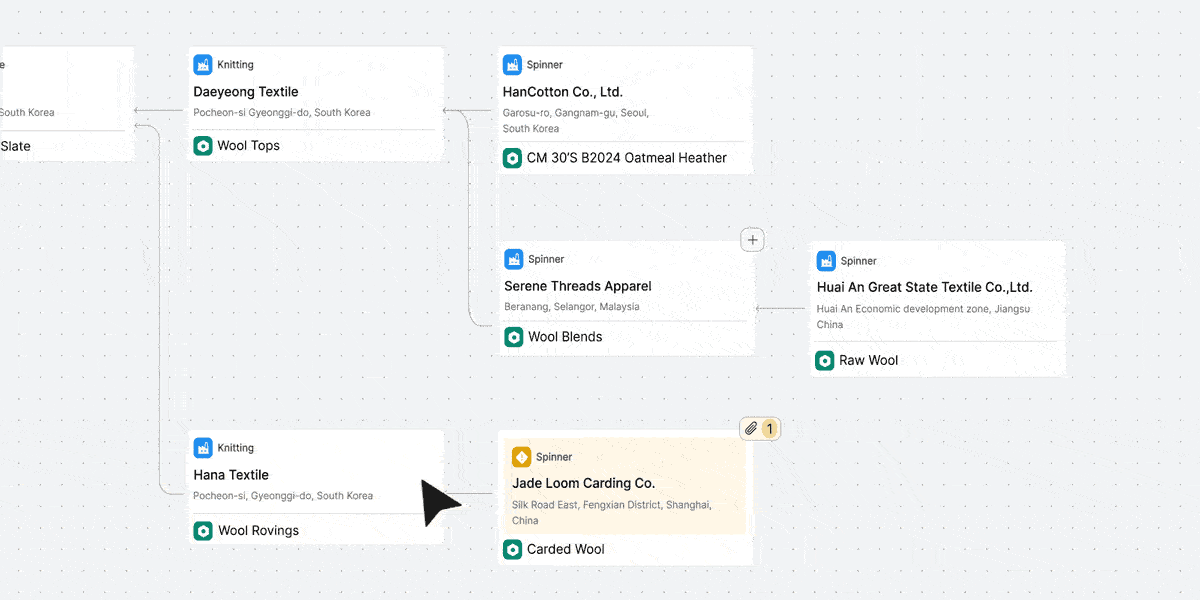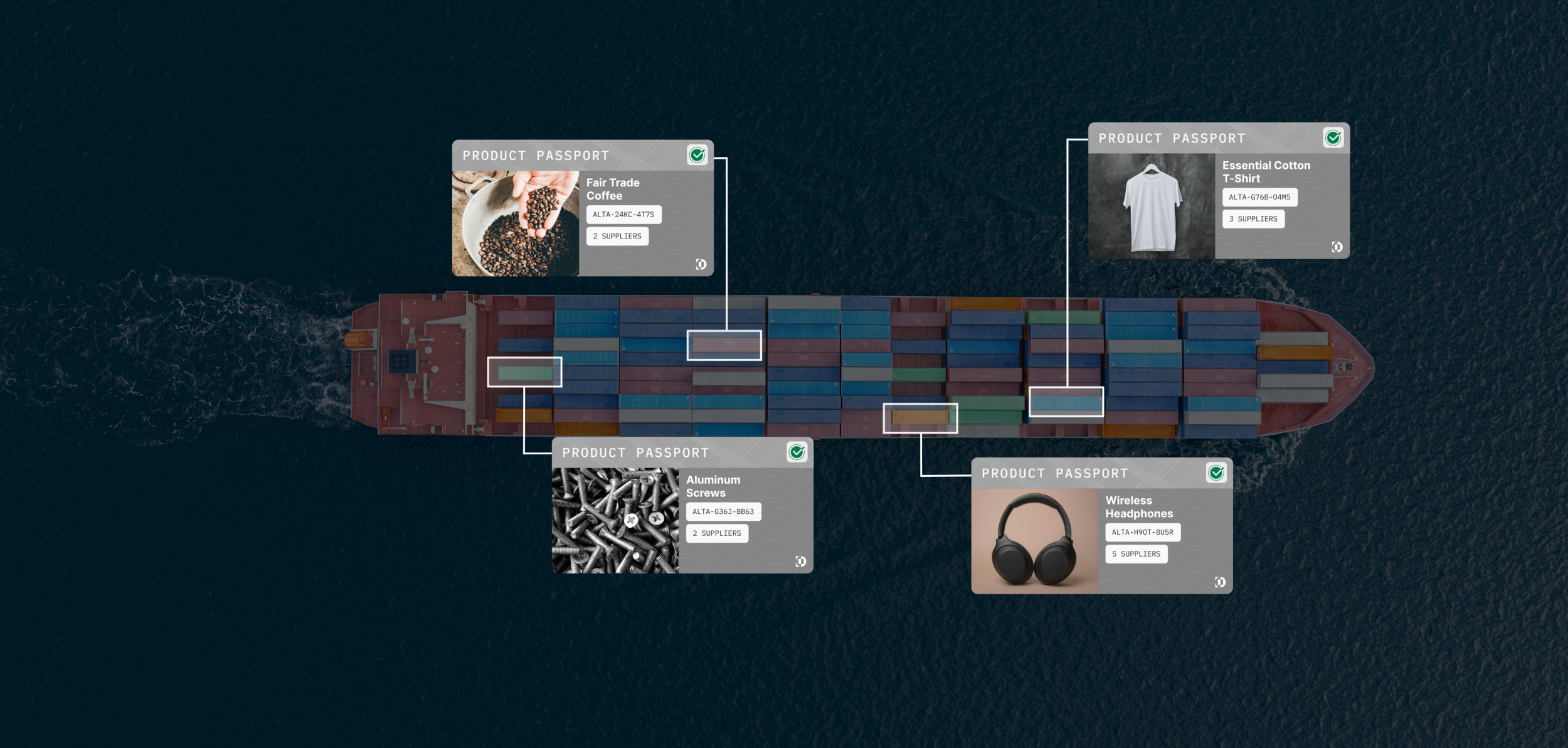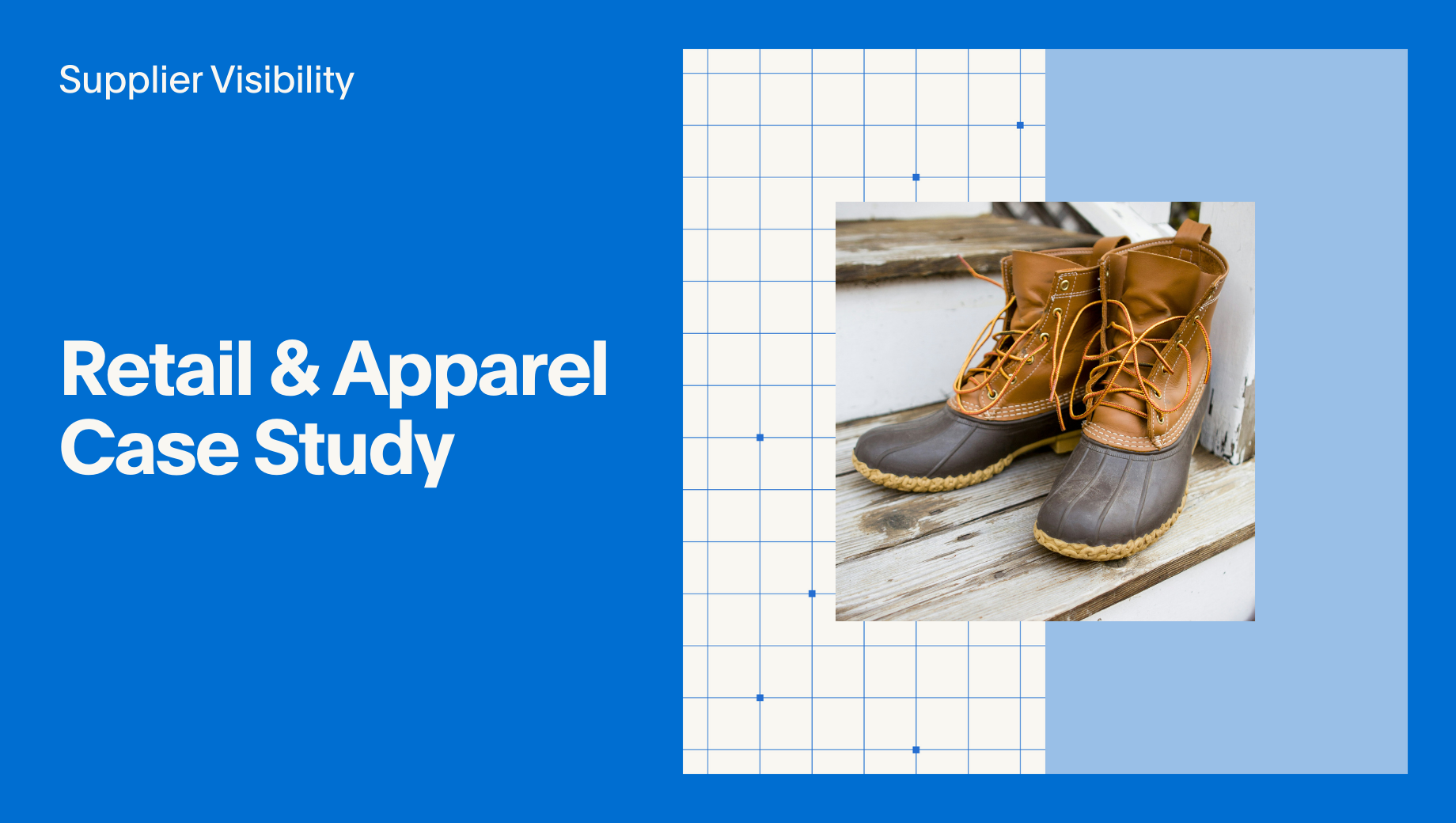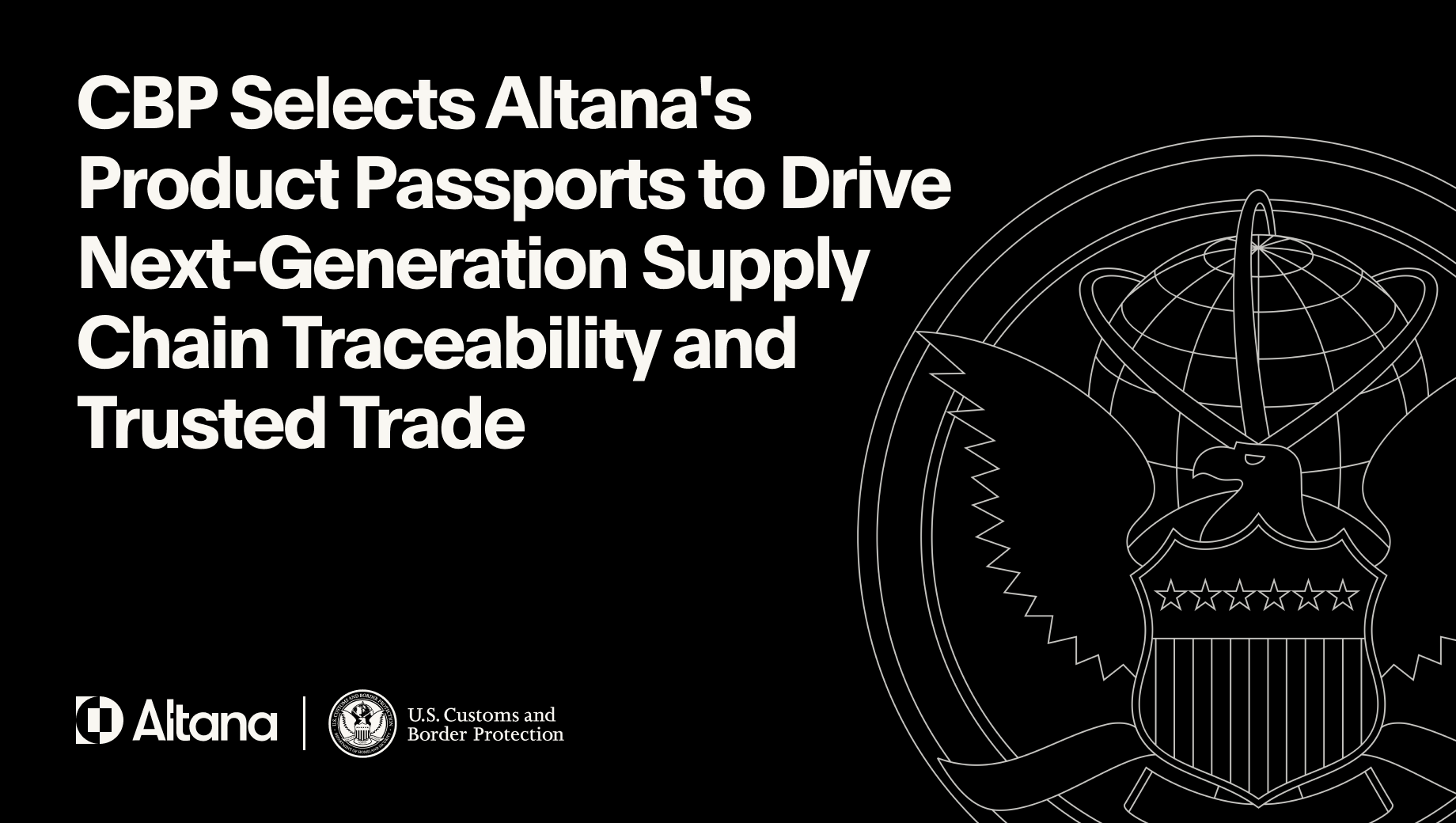You approach the turnstile at a game or concert with your ticket ready on your phone. You enter the office, fob or ID card in hand. You move through airport security with a digital boarding pass, Global Entry icon displayed in the corner.
You know you’ll clear these entrances. The verified ticket, official ID, fast swipe, scan, or stamp — these trusted, digital documents confirm who you are, maintain the security of the venue, building, or country, and establish a shared format and context that safely moves thousands, millions, even billions of people to their destinations.
A similar system of proactive, digital verification and trust has never been replicated in global trade. Market pressures fractured the supply chain into a complex, opaque web of global suppliers; post-Cold War peace integrated global markets and blurred borders. Now, amid European land war, U.S.-China Great Power competition, supply shocks, tariffs, and trade war, regulators want to know: What is this product, and what’s in this product? How was it sourced, produced, and moved around the world?
To keep goods flowing at scale, and to reward trusted traders, the global trade network needs its own fast pass – a collaborative, shareable, digital representation of a product's entire journey from cotton fields and rare earth mines to the factory floor to the store shelf.
Global trade needs Altana Product Passports.
The source of product truth – your Altana catalog
The digital passes you use to move through the world require a set of facts about you: Name, birthday, social security number, address, phone number, and more. In Altana’s product network, these types of facts about your products are stored in product profiles, which contain a product name, description, HS code, country of origin, and more than 200 other attributes. To know your products’ entire journey, you also need details about the suppliers, customers, sites, shipments, orders, entries, and more. This collection of information is your catalog in Altana — a central source of truth for supply chain data.
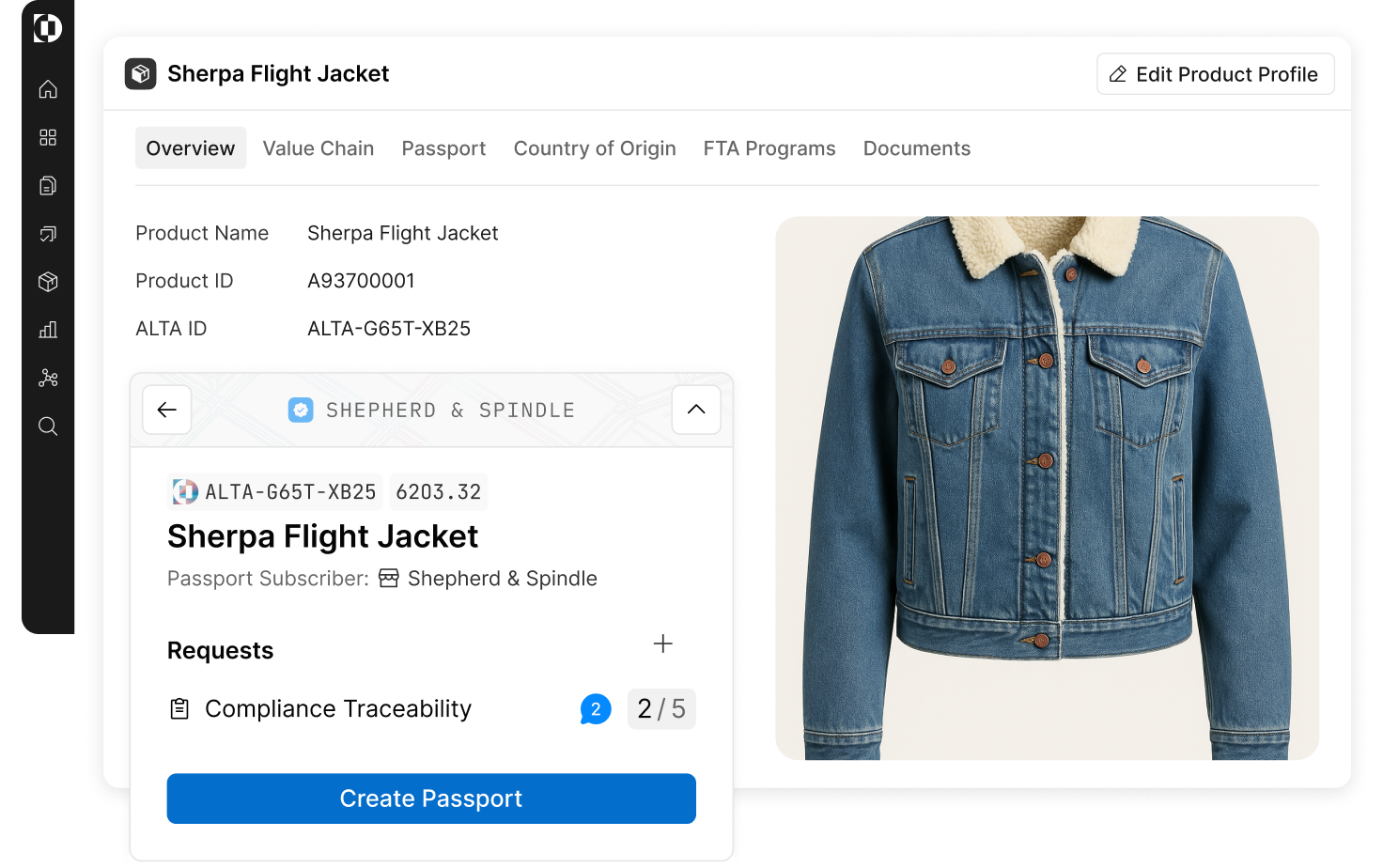
As with your products, there are hundreds of attributes to know about you, but to get into the baseball game, you don’t need to share your mother’s maiden name and last year’s taxable income. This is the concept behind Product Passports. You create a Passport to share with a supply chain partner and only include the information needed for the situation, from clearing the border to tracing a value chain. With your customers, you may want to share product dimensions, packaging details, and costs, while regulators require value chain visibility, clear duty rates across stacking tariff rules, and compliance documents for any flagged risk.
A network effect to trace a product’s journey
As you curate an Altana catalog for the products you sell, you can request and link Product Passports from your suppliers for the parts that make up your products. This linking helps to build a traceable picture of how a product was made from raw material to final assembly, as documented by the manufacturers themselves. Each product owner takes part in documenting their piece of the chain and keeping it current — no more black box or cumbersome surveys to figure out what’s going on upstream. 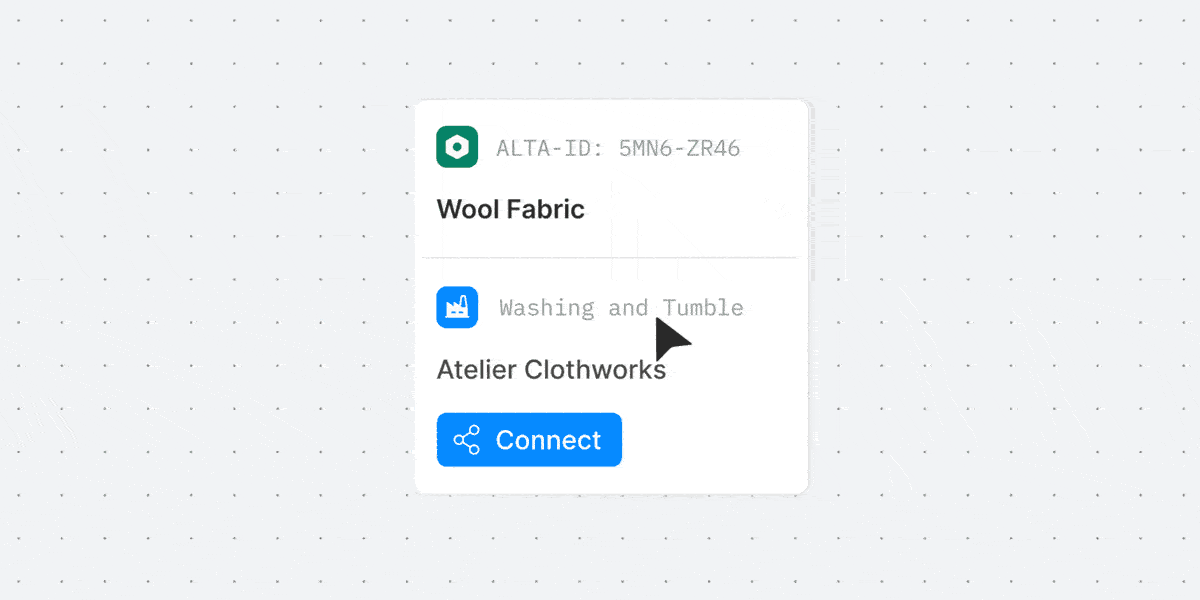
Traceability used to be a manual, one-off exercise that could only be done once a year for a sampling of products. But supply chain relationships are dynamic, and the trade landscape is constantly changing. Altana’s AI runs continuously to keep product information and partner links up-to-date. The AI models suggest network connections, calculate duty rates, determine product classification, identify country of origin and free trade agreement (FTA) eligibility, and surface compliance risks. These shared insights help you work seamlessly with supply chain partners to complete and verify product information.
Accelerated customs clearance through trusted trade
Stadium security and baseball fans both want and expect a safe experience at the game, but don’t want hours-long lines to get into the ballpark. Global trade has a similar dynamic. Regulators and businesses both want streamlined customs clearance that protects national security and taxpayer dollars and ensures that products are ethically sourced. But even for trusted importers, following trade laws is increasingly hard and complex. There has not been a shared standard for compliance documentation and a system for green-lighting trusted goods, resulting in entry delays and costly detentions for importers and a struggle to focus on real threats for regulators. With Product Passports, importers and regulators no longer have to sacrifice entry efficiency for enhanced security. In 2022, Customs and Border Protection (CBP) launched its Global Business Identifier Program (GBI), with a mission of modernizing trade and improving collaboration with industry. In May 2025, CBP announced it selected Altana’s Product Passport technology to serve as the product-level identifier to prove compliance. Over months of working collaboratively, Altana has refined the design and functionality of Product Passports with direct feedback from CBP about how this technology can fulfill their mission and serve importers.
Product Passports have brought regulators and businesses together, transforming their trade relationship from closed off to collaborative. The result is a more transparent and resilient global economy.
How a Product Passport works in practice
Collaborating with supply chain partners through Product Passports is as simple and similar as connecting with your professional network on LinkedIn. Here’s how an importer working in Altana’s product network builds their product catalog, traces value chains with suppliers, and collaborates with regulators to fast-track customs entry.
Create your catalog
To start, an importer uses the sophisticated AI-powered models available in Altana’s product network to create their catalog. They upload their bill-of-materials, known supplier names and addresses, and any other information about their supply chain that they have across various systems. Altana’s AI structures the data into a standard product profile and catalog format. This step is critical. Standardization of supply chain data makes linking information and collaborating with network partners possible.
Enrich your catalog with AI
Altana’s AI provides suggested connections to help illuminate likely suppliers and potential compliance risk for a specific product at every tier, pulling from billions of proprietary shipment records in Altana’s Knowledge Graph. Sourcing and procurement teams can add, edit, and delete connections in a product’s value chain to curate a verified source of truth for a product’s journey.
AI then calculates duty rates across complex tariff stacking rules, classifies products, flags misdeclared country of origin, and identifies FTA eligibility and qualification to help prepare accurate customs entries.
Trace value chains
Altana’s AI helps businesses prioritize their traceability work by illuminating risk and missing data points that are required to prove compliance and qualify for FTAs. Collaboration features enable them to make requests of their supplier network directly in the platform.
Suppliers receive requests and can quickly respond by linking the relevant Product Passport from their catalog. This network collaboration unlocks significant benefits for suppliers. Having product and supply chain information standardized in a catalog that is shareable through Passports makes compliance due diligence in a click of a button, rather than an endless exercise in document gathering and folder formatting. The benefit compounds as the same product information is reused and shared across multiple buyers.
Collaborate with regulators
After accepting information and documents from suppliers into their catalog, the importer can share the verified Product Passport with the regulator. The regulator evaluates the Product Passport and engages directly with the importer to verify information, remediate issues, and pre-validate compliance before the shipment reaches the border.
This proactive approach provides regulators with the time they need to confirm product safety and compliance with trade laws before the port of entry so that importers don’t experience disrupted timelines and budgets. When the entry is filed, logistics providers simply put the Passport ID on the declaration so customs knows to clear the shipment as soon as it reaches the border.
Get the Global Entry for goods
This isn’t just a concept. Trusted traders are actively connecting on Altana’s product network and sharing Product Passports with CBP to pre-verify shipments and clear borders consistently.
These traders are proving that their products are made in humane and safe ways, saving millions of dollars for their businesses by streamlining their compliance programs and strengthening their standing with CBP. Product Passports are powering a new era of trade in which the public and private sectors work together to clear shipments and maintain security.



